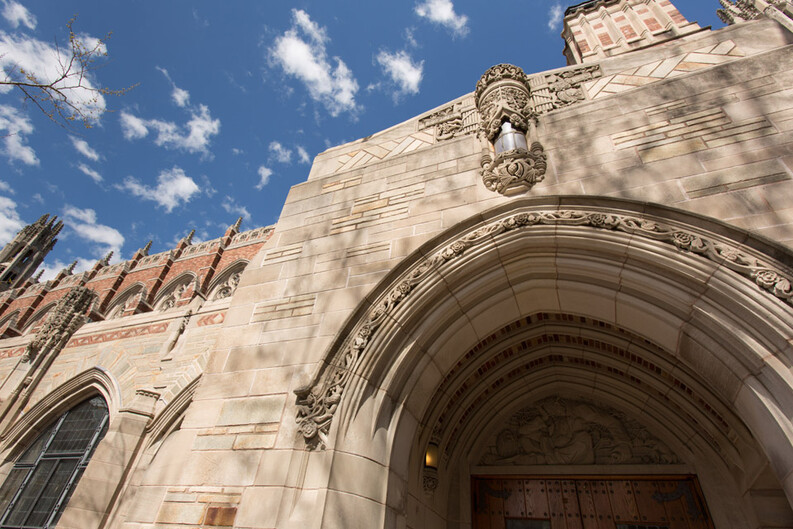Housing Clinic Obtains Favorable Ruling in Connecticut Supreme Court

On January 26, 2018, the Housing Clinic at Yale Law School secured its first victory before the Connecticut Supreme Court in Connecticut Housing Finance Authority v. Alfaro. The Clinic represented Asdrubal Alfaro on his appeal to the Court, authoring his successful petition for certification and merits briefs and presenting oral argument before the Court.
The case concerned a law (Section 42-150bb of the Connecticut General Statutes) that authorizes attorney’s fees for consumers who successfully prosecute or defend a contract action. In a 5-2 decision, the Court articulated how to determine if a consumer has successfully defended an action: if the termination of proceedings in some way favors the defendant, the Court ruled that there would be a rebuttable presumption that the defendant was entitled to fees.
The Court’s decision reversed the rulings of the appellate and trial courts, which would have placed the burden on consumer-defendants to prove that they caused the case to end. Connecticut attorney Peter Lathouris represented Alfaro at trial and on appeal to the Connecticut Appellate Court. After an unfavorable appellate decision, Attorney Lathouris referred Alfaro’s case to the Clinic. The Clinic assumed primary responsibility for filing Alfaro’s petition for certification and representing Alfaro before the Connecticut Supreme Court.
Students in Yale Law School’s Housing Clinic can select from three tracks focused on improving access to housing and preventing anticonsumer practices: mortgage foreclosures, evictions, or fair housing. The Clinic represents Connecticut homeowners and tenants in trial-level and appellate proceedings, including through its Attorney for a Day Program, which provides same-day representation to unrepresented homeowners at weekly foreclosure proceedings at New Haven’s Superior Court. The Clinic also works on legislative proposals and policy projects and files amicus briefs on housing and consumer issues in state and federal courts, including the U.S. Supreme Court.
Once the Connecticut Supreme Court agreed to hear Alfaro’s appeal in June 2017, the Clinic began drafting a brief in support of Alfaro’s position.
“We approached the case as a question of statutory interpretation,” said James Mandilk ’17, a former Clinic student director. “We parsed the statute’s text and legislative history, but we also made commonsense arguments based on our extensive experience representing homeowners. Our Attorney for a Day Program in particular shows how important it can be for a homeowner facing foreclosure to have an attorney. Making attorney’s fees more broadly available encourages homeowners to seek legal assistance and consumer attorneys to accept their cases.”
The Clinic students benefited from a supportive brief filed by the Connecticut Fair Housing Center, Connecticut Legal Rights Project, Inc., Connecticut Legal Services, Inc., Greater Hartford Legal Aid, Inc., New Haven Legal Assistance Association, Inc., and the Quinnipiac University School of Law Civil Justice Center.
“Legal aid and consumer practitioners from across the state understand how important the potential of recovering attorney’s fees is to sustaining and expanding legal aid programs and other legal resources for Connecticut consumers,” said J.L. Pottenger, Jr. '75, the Nathan Baker Clinical Professor of Law at Yale Law School and a supervisor of the Housing Clinic. “We are grateful for the support of the amici curiae, both for briefing arguments that complemented our own and for helping our students prepare for oral argument before the Court.”
After briefing, James Mandilk ’17 and Nathan Nash ’17 returned on September 14, 2017 to present oral argument. “Being able to come back to argue a case in front of the Connecticut Supreme Court that we discussed, briefed, and mooted for over a year was a meaningful capstone experience to our many semesters in the Clinic,” said Nash, a former student member of the Clinic. “We were excited to present argument before the Court and felt well prepared, thanks to hours of practice with our instructors, colleagues, and amici, not to mention each other.”
Following the hour-long oral argument, the Clinic felt hopeful that the Court would agree with its position. “It is impossible to tell what the Justices are thinking, but their questions suggested that they seriously engaged with our advocacy for a more generous standard to determine whether Connecticut consumers are entitled to attorney’s fees,” said Jeffrey Gentes, a Visiting Clinical Lecturer in Law at Yale Law School and Supervising Attorney of the Clinic, as well as the Managing Attorney of Foreclosure Prevention for the Connecticut Fair Housing Center. “It is rewarding to see hard work from hours of seminars, brief-writing, and legal research recognized by a decision, binding on all Connecticut state courts, that creates a more level playing field for Connecticut consumers fighting against better-resourced creditors.”
In the ruling, the Connecticut Supreme Court, quoting an opinion by U.S. Supreme Court Justice Ruth Bader Ginsburg, recognized that upholding the trial and appellate courts’ decisions in Alfaro and restricting access to attorney’s fees could “impede access to court for the less well heeled” by allowing creditors “to escape a statutory obligation to pay” consumers’ attorney’s fees.
Since Alfaro was argued in September 2017, the Connecticut Supreme Court has granted petitions for certification filed by the Housing Clinic in two other cases, Wells Fargo Bank, N.A. v. Owen, and U.S. Bank Nat’l Ass’n v. Blowers.
“Arguing before the Connecticut Supreme Court allows our students to present novel questions of law to Connecticut’s court of last resort,” said Gentes. “We look forward to continuing our work to improve access to justice for Connecticut homeowners at every stage of litigation and appeal.”
In addition to seeking more success at the Connecticut Supreme Court, students in the Clinic will argue Alfaro on remand to the Superior Court to make sure Mr. Alfaro receives the attorney’s fees to which he is entitled.


